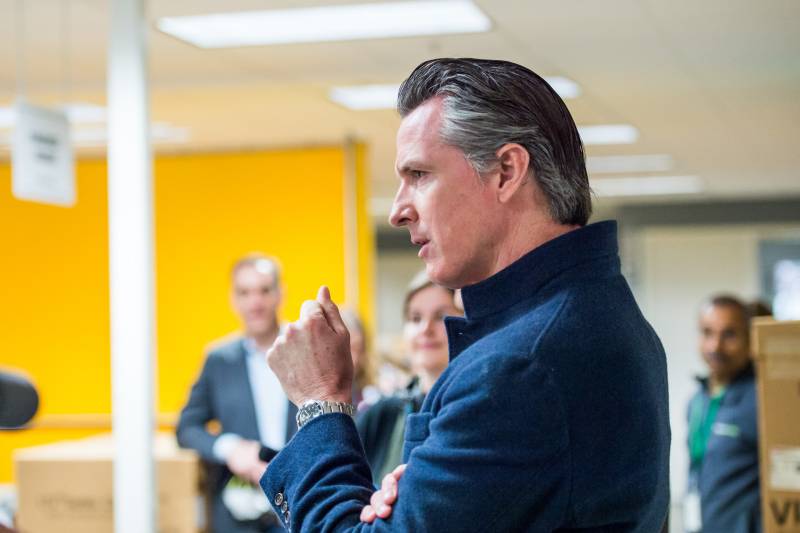The recall campaign has until March 17 to collect nearly 1.5 million valid signatures and trigger an election, which could take place in the fall. Two groups are spearheading the effort: California Patriot Coalition, the official recall petitioner, and Rescue California, a committee raising money and organizing signature-gathering campaigns.
Recall organizers say they've raised around $3.5 million from the two committees through 14,000 donations.
The largest donations to date have come from Orange County entrepreneur John Kruger's consulting firm Prov 3:9 LLC, developer Geoff Palmer, venture capitalist Chamath Palihapitiya and DGB Ranch, a mysterious Los Angeles-based company.
Businesses in the state are not a political monolith — though they occasionally can unite to form a political force, as with last year's $76 million campaign to defeat property tax increases proposed in Proposition 15.
A wide array of businesses fumed when Newsom signed Assembly Bill 5 in 2019, which restricted the ability of employers to classify workers as independent contractors. Several gig companies including Uber and DoorDash tossed in more than $200 million dollars to push Proposition 22 over the finish line, granting themselves an escape hatch from AB 5 in the labor code.
And anger has only grown over the past year. Companies have complained that the Newsom administration left them in the dark when crafting coronavirus regulations.
But the inherent political cautiousness of large businesses is holding them back from turning their anger against Newsom into action, said Sean Walsh, a Republican adviser to Arnold Schwarzenegger during the 2003 recall campaign.
By backing a recall, companies would be betting on an undefined replacement — while running the very real risk of making a permanent enemy should Newsom survive and remain in office. And the current recall calendar likely ensures the election would take place in the fall, after the governor has decided the fate of hundreds of bills on his desk.
"There are bills that come up that directly affect individual businesses," Walsh said. "And some could say it would be irresponsible of that business to take on a governor when he could veto something that could be very, very important."

